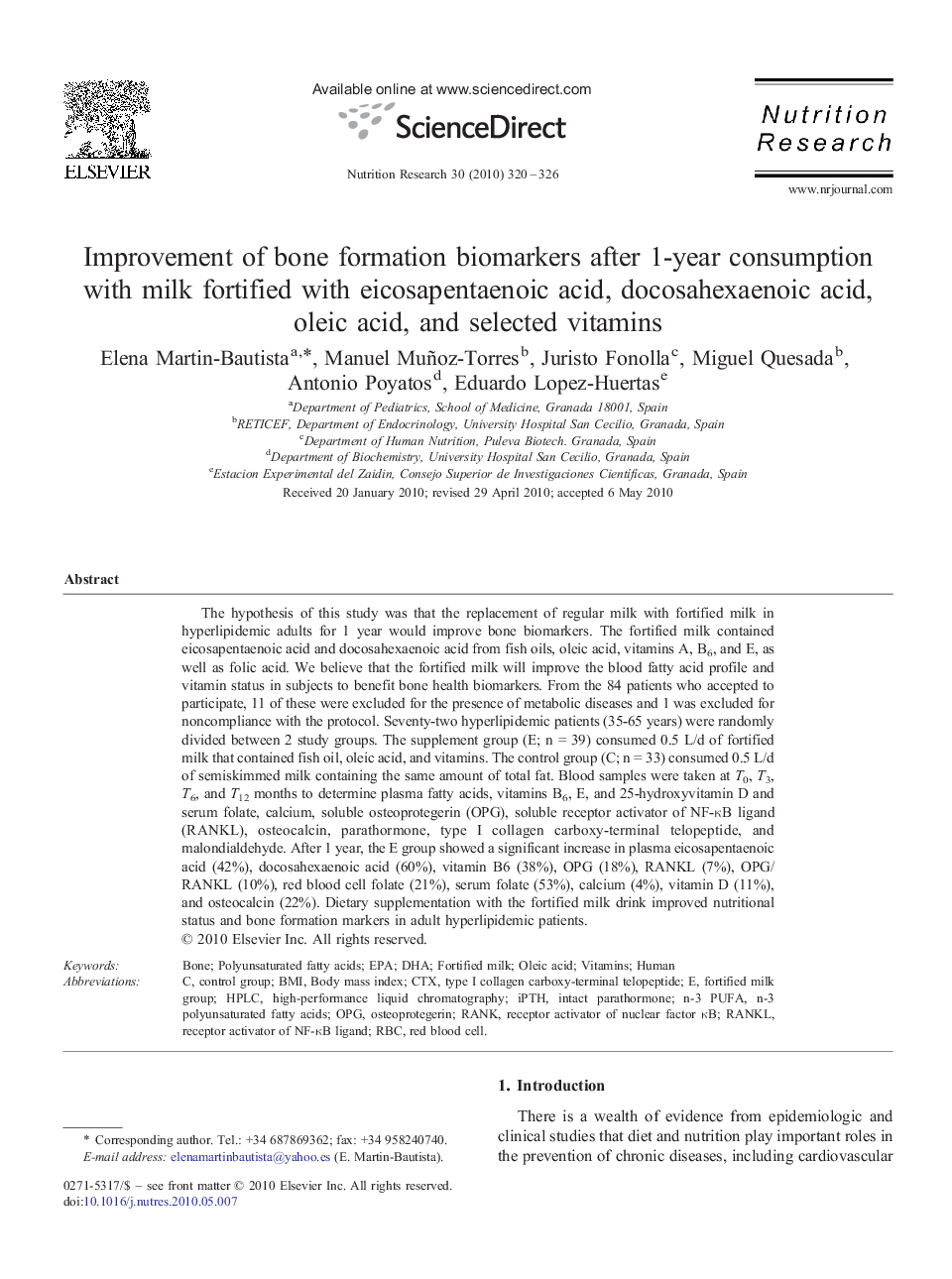| Article ID | Journal | Published Year | Pages | File Type |
|---|---|---|---|---|
| 2809479 | Nutrition Research | 2010 | 7 Pages |
The hypothesis of this study was that the replacement of regular milk with fortified milk in hyperlipidemic adults for 1 year would improve bone biomarkers. The fortified milk contained eicosapentaenoic acid and docosahexaenoic acid from fish oils, oleic acid, vitamins A, B6, and E, as well as folic acid. We believe that the fortified milk will improve the blood fatty acid profile and vitamin status in subjects to benefit bone health biomarkers. From the 84 patients who accepted to participate, 11 of these were excluded for the presence of metabolic diseases and 1 was excluded for noncompliance with the protocol. Seventy-two hyperlipidemic patients (35-65 years) were randomly divided between 2 study groups. The supplement group (E; n = 39) consumed 0.5 L/d of fortified milk that contained fish oil, oleic acid, and vitamins. The control group (C; n = 33) consumed 0.5 L/d of semiskimmed milk containing the same amount of total fat. Blood samples were taken at T0, T3, T6, and T12 months to determine plasma fatty acids, vitamins B6, E, and 25-hydroxyvitamin D and serum folate, calcium, soluble osteoprotegerin (OPG), soluble receptor activator of NF-κB ligand (RANKL), osteocalcin, parathormone, type I collagen carboxy-terminal telopeptide, and malondialdehyde. After 1 year, the E group showed a significant increase in plasma eicosapentaenoic acid (42%), docosahexaenoic acid (60%), vitamin B6 (38%), OPG (18%), RANKL (7%), OPG/RANKL (10%), red blood cell folate (21%), serum folate (53%), calcium (4%), vitamin D (11%), and osteocalcin (22%). Dietary supplementation with the fortified milk drink improved nutritional status and bone formation markers in adult hyperlipidemic patients.
